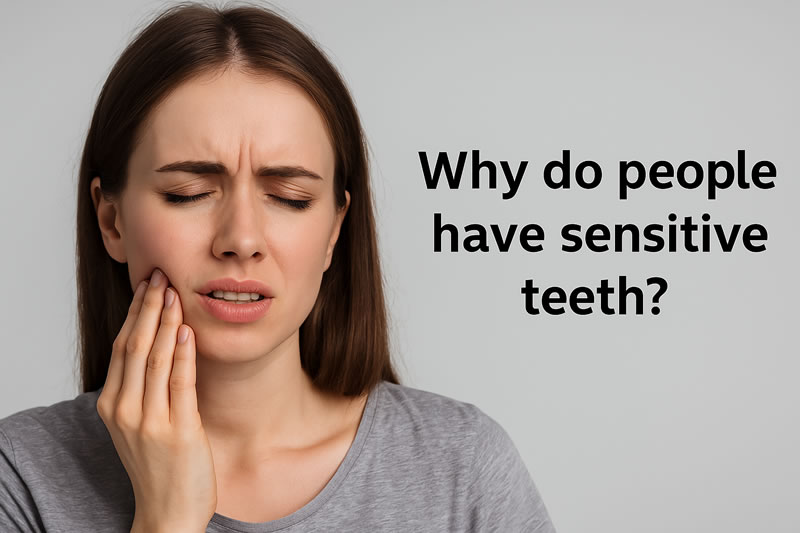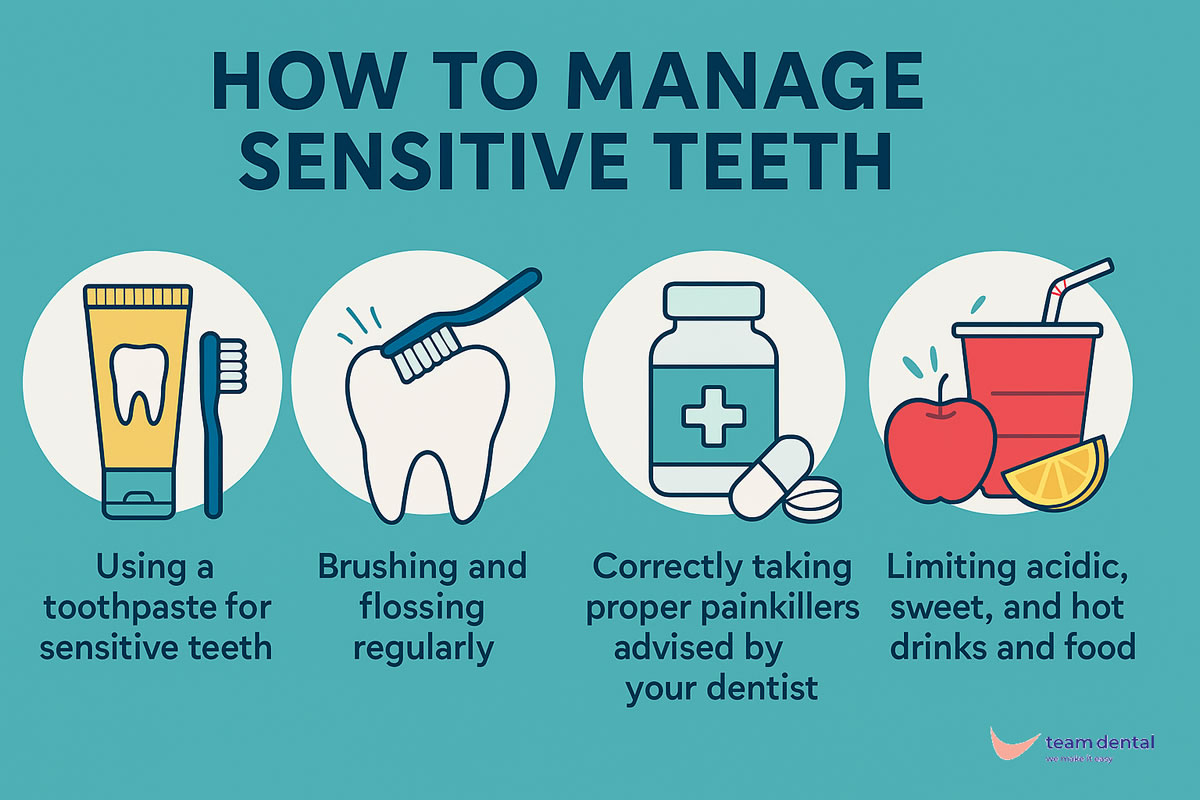Tooth sensitivity is a common problem caused by issues like age, diet, oral hygiene habits, and even recent dental procedures. The good news is that relief is possible. By understanding what triggers your sensitivity—such as acidic foods, harsh brushing, or gum disease—you can take targeted steps to reduce discomfort. Simple changes in your dental routine, using gentler products, and seeking professional advice can make a big difference in managing and even preventing tooth pain. You can relieve the pain of tooth sensitivity when you know what’s causing the pain. Tooth sensitivity can be caused by seven things:
7 Things that cause tooth Sensitivity
- Age: People between 25 – 30, or seniors
- Damaged teeth: broken, chipped, cracked teeth
- Diet: acidic food, hot or cold liquids or foods
- Incorrect oral care: brushing incorrectly or too hard, not flossing, not visiting your oral hygienist regularly
- Oral disease: Gum recession, gingivitis
- Recent dental procedures
- Poor oral care products: Too-hard toothbrushes, acidic mouthwash
How to lessen tooth sensitivity:
- Correct personal oral hygiene care and using the right products
- Correcting your diet
- Correctly taking proper painkillers advised by your dentist
- Visiting your oral hygienist and dentist regularly
Sensitivity can range between slight and severe.

Your age, and the state of your teeth, will determine the extent of your pain. Even if you don’t fit the age groups above, you can still suffer from teeth sensitivity.
Early signs of tooth sensitivity:
- A reaction to hot or cold drinks or foods
- A continual dull ache and swollen gums
Damaged teeth can be the result of accident, cavities, or injury. If that’s the case, you must see your dentist at once. If the pain is a result of bruxism a.k.a. grinding your teeth, wearing a dental teeth guard, and not eating or drinking 3 hours before you go to bed will help. Exercise and going to be early are also good ideas. It will help you sleep better and relieve stress, which lessens the likelihood of grinding your teeth. Being overweight can also cause brixism.
Indulging in acidic food or drinks can also result in grinding your teeth. They will attack the tooth enamel, causing your gums to recede. Food and drinks to avoid include:
- Citrus fruits and juices
- Coffee
- Candy/Sweets
- Pickles
- Spices
- Sugar heavy soft drinks and carbs
- Sports drinks are the worst
The best routine for great oral care, and for avoiding gingivitis and bad breath
- Use soft-bristled toothbrushes to prevent damaging your tooth enamel
- Use sensitivity reducing toothpaste and brush after every meal
- Floss after every meal
- Use a fluoridated mouthwash
- Avoid bleaching your teeth
- Visit your oral hygienist every 3 months, and your dentist every six.
When to visit your dentist
If you are experiencing tooth sensitivity, make an appointment with your dentist straight away. If you have a cavity, don’t wait until it hurts. Sometimes a cavity won’t hurt but can cause infection and gingivitis. This is a bad idea. Infection could result in weakening the tooth or even losing it.
If you need to take painkillers before you can see your dentist, the best thing to do is to phone your dentist and ask their advice as to which painkiller you can take. Follow the medicine’s instructions carefully.
Are You suffering from tooth sensitivity? Are you needing advice on how best to care for your teeth?
If you have any concerns about your oral health, contact us on 0508 TEAM DENTAL and make an appointment today.
FAQs:
Q1: What are the main causes of tooth sensitivity?
A: Tooth sensitivity can be triggered by several factors including acidic foods, harsh brushing, gum disease, damaged teeth, recent dental procedures, and using poor oral care products. Age can also play a role.
Q2: How can I reduce my tooth sensitivity at home?
A: Use a soft-bristled toothbrush, switch to sensitivity-reducing toothpaste, avoid acidic foods, maintain good oral hygiene, and visit your dentist regularly. Always consult your dentist before taking any painkillers.
